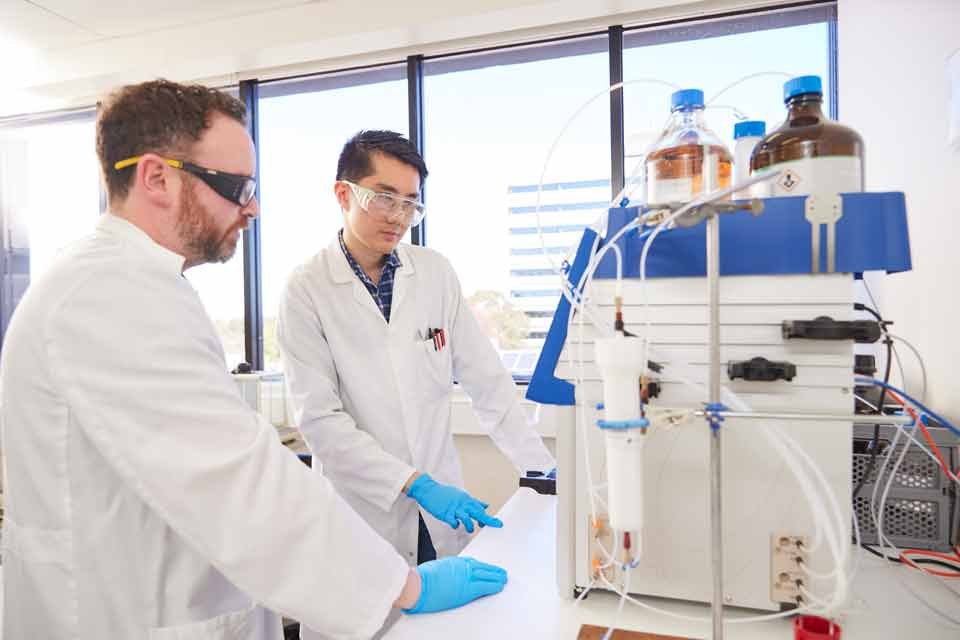The first-in-class therapy is being studied as a treatment in adults with HR+, HER2- advanced or metastatic breast cancer whose disease progressed following prior treatments.
The potential medicine, referred to as ‘PF-07248144’ and co-invented by scientists from the Monash Institute of Pharmaceutical Sciences (MIPS), blocks two proteins – KAT6A and KAT6B – which help control how genes are switched on and off. Because these proteins influence how cells grow and develop, finding ways to block them can ‘turn down the volume’ on those genes and slow the cancer’s ability to grow and spread.
The advancement to Phase 3 clinical trials is supported by highly encouraging Phase 1 results, where PF-07248144, in combination with fulvestrant (a type of hormone therapy), achieved a 37 per cent objective response rate in patients.
The KAT6 platform was licensed to Pfizer through the CTx’ commercialisation partner Oncology One in 2018, and Pfizer progressed the program to ultimately deliver PF-07248144. From MIPS, the project was co-led by medicinal chemists, Professor Paul Stupple and Dr Ylva Bozikis.
Professor Stupple said it’s exciting to see PF-07248144 in Phase 3 clinical trials and a step closer to patients. “The discovery of “PF-07248144 is an important scientific advance. For the first time, selective targeting of KAT6 opens new avenues for the treatment of advanced breast cancers.”
“This program represents what can be achieved through scientific collaboration and uniting diverse expertise. By bringing together skills and knowledge across academia and industry we were able to translate early stage research into a promising new therapy now advancing in clinical trials. Seeing this work benefit patients and progress to Phase 3 trials is a wonderful testament to the impact of true collaboration.”


